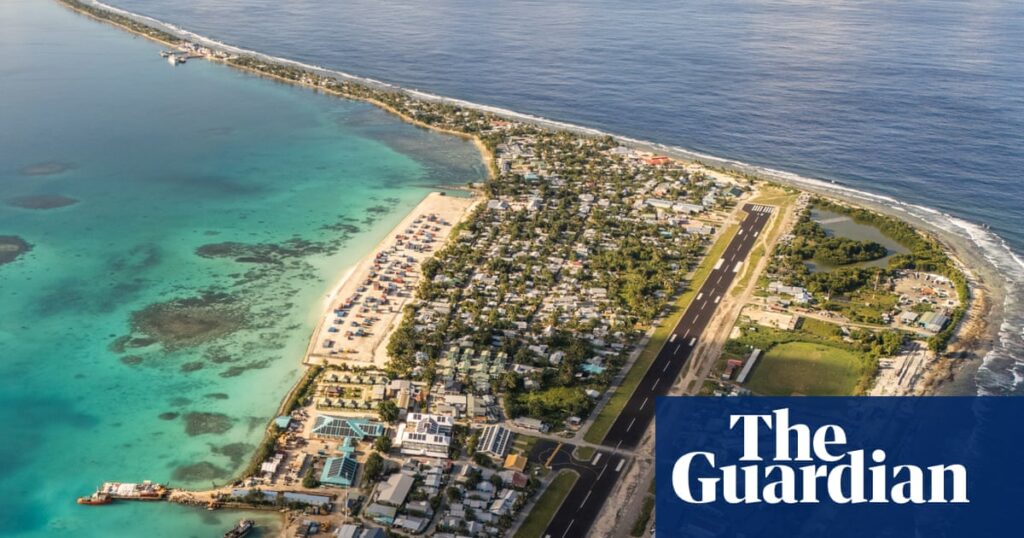
Almost a third of the population in the Pacific nation of Tuvalu is vying for a groundbreaking climate-linked visa to relocate to Australia, as rising sea levels threaten their island home. This initiative marks a significant step in climate migration efforts, with Australia offering 280 visas annually to Tuvalu citizens under an unprecedented agreement.
Official figures reveal that over 3,000 Tuvaluans have entered the ballot for the initial round of visas, representing nearly a third of the nation’s population. This overwhelming response highlights the urgent threat climate change poses to Tuvalu, where scientists predict the islands could become uninhabitable within the next 80 years.
Australia’s Landmark Climate Migration Deal
Australia’s foreign affairs department has emphasized the country’s recognition of the severe impacts of climate change on vulnerable nations, particularly in the Pacific. The Falepili Union, signed in 2024, is part of Australia’s strategy to counter China’s growing influence in the region. This agreement introduces a new visa category exclusively for adult citizens of Tuvalu.
The program’s popularity is evident, with 3,125 Tuvaluans entering the ballot within four days of its opening.
“This is the first agreement of its kind anywhere in the world, providing a pathway for mobility with dignity as climate impacts worsen,”
stated a spokesperson for Australia’s foreign affairs department.
Implications for Tuvalu’s Future
Tuvalu, home to 10,643 people according to the 2022 census, faces the dual challenge of climate change and potential talent loss. Registration for the visa ballot costs A$25 ($16), with the process closing on July 18. While the program offers Tuvaluans the opportunity to live, study, and work in Australia, it also raises concerns about a potential brain drain.
John Connell, a geographer at the University of Sydney, cautioned against the long-term exodus of skilled workers.
“Small states do not have many jobs and some activities don’t need that many people,”
he noted.
“Atolls don’t offer much of a future: agriculture is hard, fisheries offer wonderful potential but it doesn’t generate employment.”
Strategic and Diplomatic Dimensions
The Falepili pact also commits Australia to support Tuvalu in the face of natural disasters, health pandemics, and military threats. Tuvalu’s Prime Minister, Feleti Teo, highlighted the significance of this commitment.
“For the first time, there is a country that has committed legally to come to the aid of Tuvalu, upon request, when Tuvalu encounters a major natural disaster, a health pandemic or military aggression,”
he stated.
Additionally, the agreement allows Australia a voice in any defense agreements Tuvalu might enter with other nations, sparking concerns about sovereignty. Tuvalu remains one of the few countries maintaining diplomatic ties with Taipei instead of Beijing.
Regional Stability and Future Prospects
Australia’s Prime Minister, Anthony Albanese, has articulated a vision for a peaceful and prosperous Pacific region, reinforcing Australia’s role as a reliable partner.
“It shows our Pacific partners that they can rely on Australia as a trusted and genuine partner,”
Albanese remarked.
As the world grapples with the realities of climate change, the Tuvalu-Australia agreement could serve as a model for future climate migration strategies. The initiative underscores the need for innovative solutions to address the displacement of communities due to environmental challenges, while also highlighting the geopolitical dynamics at play in the Pacific.





